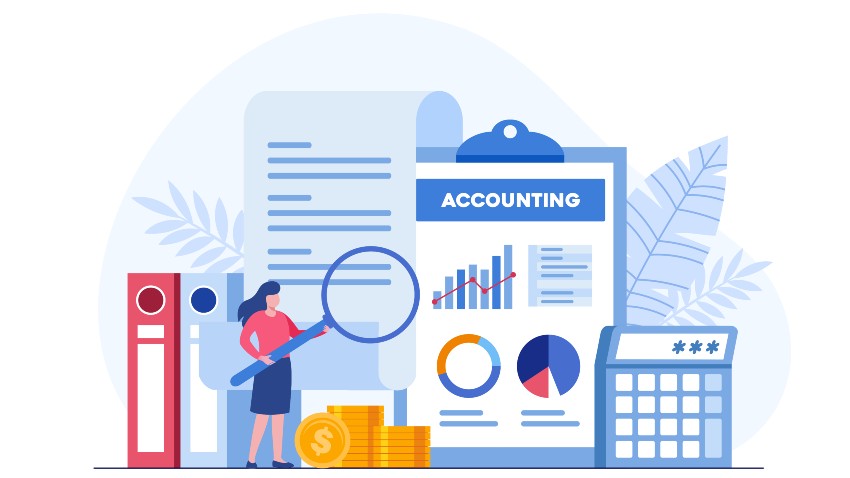With Mobile banking disrupting the financial industry, traditional banks have also pivoted their course and have started providing mobile banking facilities. Money management is something that every individual earning money needs to understand. With the right strategy, you can control your Spending and follow the budget you have prepared. You can earn money by investing some of your savings regularly.
Accordingly, Bank Accounts do play an important role in managing your money. They have features like Low credit notification, Automated Saving features, Automated bill payment, etc.
However, a bank account can’t be a single solution for managing money for a low-income individual. Here in this write-up, we have mentioned the benefits of a bank account, and, explained why a bank account cannot be a money management tool for a Low-income individual.
What is Money Management?

Money Management means the procedure where one saves, invests, or spends money. Money management can be done by an individual or a whole group of people. Money Management is often associated with portfolio management and investment management. The “financial market” word would mean the making of investment plans for funds such as pension plans and mutual funds.
In simple terms, money management would mean keeping a record of an individual’s household expenses or business expenses. Many financial advisors help you understand money management more clearly. Nowadays, there are many money-saving apps that you can use to keep track of your spending and saving. If you don’t understand the fundamentals of money management then there is a high risk you may fall into a debt trap or a financial crisis.
Well, under money management, not only does saving money comes into play, but it also incorporates all the service that is present in the investment agency. With new technological advancements, there are multiple tools in the financial market to manage money. These tools can focus on your finance or your organization’s finance.
When an individual has an increased net worth, usually a financial advisor helps that individual save money by investing in various policies or by buying assets. Financial advisors are mostly from private banks or some brokerage services. They prepare a strategy for the money management process that covers your salary, retirement, emergency fund, etc. Certain money management agencies, such as investment money management, majorly target the investment industry.
This service provides investment funds that cover every asset class present in the financial market. They even support institutional clients. The managers present at an investment company provide plans that cover institutional retirement plans, foundations, and more.
Types of Money Management
Personal Finance
Personal finance, as the name suggests, the money management of personal finances, refers to the handling of money on a personal level. In this type of money management, the financial advisor or an app focuses on personal budgeting, saving, and spending. In the case of personal finance financial advisors prepare a periodic strategy to monitor personal savings, budgeting, etc., some money-saving apps help you monitor your spending, and some of the apps even offer a round-up feature that rounds up the difference of each dollar you spend and invests it.
The strategy for maintaining a budget is not similar for everyone, which causes discrimination and credit underwriting. Distinct people have diverse situation and need that they need to tackle. Age is also a factor that varies a budgetary plan from one person to another. Consumers can be of any age, and depending on the age and their current needs, financial advisors can give you methods or prepare a strategy to help save you money.
In fact, there is a rule that is first taught to any consumer who requires personal finance, the 50-30-20 rule, which means you should allocate 50% of your income to your current needs and 30% to desires and save or invest the rest of 20%.
Corporate Finance
In the case of corporate finance, money management, planning, and strategy revolve around the corporates budget. Banana Skins reports revealing overindebtedness as a huge problem in micro-financial transactions. The strategy developed by the financial advisor plays a crucial role in the budgeting process of a corporation. To make a plan for money management, first, the company’s financial history is checked as it lays the foundation, then according to the forecasted report, a further plan is drafted.
Again, as for planning a strategy for the money management of a corporate, several elements are taken into consideration. How to use capital, how to raise capital, how much equity should be analyzed to raise funds, and other factors.
Financial Markets
A financial market is related to investments. Money management, in this case, would revolve around investments and how to use your savings or income to build a good portfolio. This is not similar to the personal finance model; in the case of the personal finance model, your savings spending and income are managed. However, when it comes to market money management, you plan a strategy on how to get a return from your savings and earnings.
In this type of money management, to gain profit on return, money managers invest money in purchasing various types of assets and managing cash using ICICI and Stellar using blockchain. The list of assets consists of fintech products, stocks, bonds, private equity, etc. On top of this facility, money management companies provide counseling, investment plans, Exchanged-traded-funds (ETFs), etc.
Tools for Money Management

There are multiple money management tools present in the market. Here, we have mentioned some of the money management tools that will help you or your organization to save a lot of money and gain profit.
- Financial planning: Financial planning means developing strategies and action plans to make perfect use of the financial resources of an individual or an organization, to achieve business goals. To make this happen, creating a relevant and practical budget is necessary.
- Cash flow management: The cash flow of an organization is very important for that organization. A proper cash flow would mean appropriate distribution of money, timely clearing of salary, etc. A company will stop working if the cash flow is disturbed by any issue; that is why automating it is an apt solution.
- Budgeting and managing a budget: A budget is prepared to create a timeline of an organization, on where it will spend money, and how much of it. A good budget consists of all the operational and manufacturing costs and with that, the profit the company will earn. Nowadays, good software can create a well-made budget that will consist of all the costs and income of your company.
- Expense management: Expense management means keeping a record of expense that is being spent by the company. In expenses, various factors are considered, such as manufacturing cost, operations, salary, etc. A good expense management system makes reimbursements and operational costs smooth and error-free. A company can use Expense management software to avoid overspending in a department.
- Payroll management: Good payroll management makes salary dispersal error-free and efficient. Any error in a payroll management system can be bad for the company. To integrate a good payroll system, your existing system should be flexible enough to change.
- Inventory tracking: By using inventory tracking software, you can track purchases and orders in real-time to reduce any errors while dispatching. With the help of this tool, a company can save a lot of time and reduce errors. This tool is necessary for big FMCG companies where they manufacture and source products.
- Tax preparation: Tax charged by the government is different for small-scale businesses in comparison to big-scale businesses. There is software that helps with business tax and prepares a detailed report for the accountant so that the accounts department can prepare an acceptable tax preparation document.
Significance of Financial Management Tools
An organization should have a well-maintained financial system for it to prosper. Using any manual financial system can be challenging as manual systems often have errors and are slow. These are some of the reasons why financial tools are required.
- Time-consuming: Having manual finance tools are time-consuming and requires an extra productive period for employees. So, automated software comes in real help of a corporation in avoiding mistakes and waste of time.
- Complex processes: Preparing a budget and maintaining it is a complex task. An automated system can prepare the right budget for your company by including every kind of expense and profit.
- Scalability: If a company needs to grow, it needs automated financial tools, as manual financial tools just can’t cope with the growth.
- Manual Errors: Manual system does often have a lot of errors. It is equally time-consuming. Automated finance tools solve the accuracy problem and do the work instantly.
How to Use a Bank Account for Money Management?
A bank account is not only for storing your money safely. A Bank account can even be used as a money management tool. It may be shocking to know that a bank account that is only used to deposit and withdraw money can also be used as a money management tool. A bank account has extra perks other than storing money; it does not matter whether it is a new bank or an old bank; every bank offers these perks.
If you are into a physical institution or you like an online bank, you should have clarity of which feature you need other than which kind of bank account you should go for. That is why we have mentioned 5 features that you can use to save money if you have a bank account:
Low Balance Alerts
Withdrawing money from your account is much easier than it was. Before, you had to go to a physical branch and cash in a check or withdraw by filling out a big form. Nowadays, you can use an online payment option or withdraw money from an ATM with your debit card.
With the introduction of fintech apps, such as PayPal and Venmo, you can send money to a business almost instantly. Overdrafts can be painful, as they charge a fee for them. You can opt for overdraft protection; however, it costs $35 for every overdraft. This amount can be even more than the actual amount that you are transferring. The best way to measure it is by keeping your balance in your mind and spending according to it.
Although it is not possible every time to keep it in mind, that is where your existing bank account can be of help. You can turn on the low balance notification option so that whenever you have a low balance, with the help of that notification, you will know that you should not spend anymore. To enable the notification you have to sign up for a low-balance notification.
To do that, in the “Settings” menu, you will find “manage alerts”, select that option, and then set a low balance limit. You can also choose in which format you would want to get the notification, either in a text format or an email.
To activate the msg format, you will have to select the option and then provide an OTP code that the bank will share with you. Not every bank has this facility; if your bank does, then download your bank’s official app and go to the setting, and clock “manage alerts”. This is a simple method of saving money on overdrafts with the help of your bank account.
Automatic Online Bill Payments
Missing bill payments is a major problem for anyone who has an issue with time management and Scarcity: Why having too little means so much book tries to explain and resolve the same. Before, as bills were mailed physically to your address, it would be hard to forget the last date, but nowadays, bills are paid online, and notifications are also sent online. So it is quite hard to remember. The best solution will be to sign up for an automatic bill payment option so that you don’t pay any late fee charges. By paying your bills on time, you can even increase your credit score.
To enable this option of automatic bill payment. You have to find out if your bank provides this feature. If yes, then gather all your bills and get to the main website of your bank, then find the option Bill payment. Enter all your bills in there and the amount that needs to be paid every time. You can choose one-time or even recurring.
Recurring bills are necessary when you have taken any subscription, and you have to pay the same amount every month. Most banks send you notifications if they have cleared any bill; in case of recurring bills, make sure to keep your account filled with money to cover every bill payment.
Sub-Accounts for Savings
If you are saving money in your bank account, but you do not have any specific goal that you are saving for, it may be bad for your savings as you may not have funds for some goal that you desire as you are not particularly saving for it. Your savings account may feel like a checking account, where you will just spend money on a day-to-day basis without saving for any particular goal.
If you want to particularly save money for each goal, you can open sub-accounts for each goal and then save money in them according to your priority. When you have created an account for a particular account, it is easy to keep a track of your savings. This has psychological proof to it. It is said that if you have labeled your money according to your goals, you will treat money differently and value it, rather than just plain money that is not labeled.
Most banks allow you to open Sub-account under a main primary account. The banks that do not allow this, you can always create new savings accounts and name them according to your need.
Automatic Savings Deposits

Having an automatic savings deposit can be helpful as it saves you the pain of saving money on your own. Several big banks like Bank of America and JP Morgan Chase offer automated savings options. By automated savings, we mean small regular deposits from your income to your bank account.
Even though other banking institutions offer automatic savings options, you should first check with your bank. If your bank has this feature, then create a savings account that will automatically deposit a certain amount to your savings account. You can even set the frequency of deposits, whether it will be hourly or weekly, or monthly.
The most efficient way to enable automated saving would be by transferring money to your savings account on the day of your salary. By having savings saved in your account, you can avoid overdraft payments. To enable the transfer, you need to tap the transfer option on the bank website and then add the amount that needs to be transferred and the frequency at which the money will be transferred.
Online Mobile Budgeting Tools
Several online budgeting tools can help you save money and help in making digital transactions. For example, as financial inclusion week’s final recap, which acknowledges the role of digital payments in greatly helping Kenyans, even traditional banks have started to partner up with a budgeting app, or they are opening a new budgeting app for their consumers. In these apps, you can make a budget that you would want to follow, and you can track your savings and spending. Some of the apps even offer investment opportunities to earn money.
These apps have a roundup feature where on every dollar you spend, the change is rounded to the nearest dollar, which is then invested in any stock or bond online. Banks have even started offering their mobile app to get done with every banking operation. You can deposit money through this app, check your balance, send money through this app, etc.; you can even track your spending and reduce that to save more money.
Apps are better than websites as you can access them anywhere, and you don’t have to log in every time you use them. Apps offered by banks vary from bank to bank, some of them offer budgeting option that lets you prepare a budget, and the app notifies you when you are not following your budget.
Why a Bank Account may not be Right for Low-Income Individuals?
To start with, 75% of the world’s poor population does not have a bank account. So, to think a bank account can be a money management tool is partially correct. There are multiple reasons why a bank cannot be a money management tool for the poor/low-income population. Here are the reasons:
- According to the Global Findex bank accounts that are made in developing countries are mostly inactive. Whereas, in the case of high-income countries 72 percent of bank accounts have around two withdrawals every month. In the case of middle-income countries, the percentage drops from 16% to 17%. This shows bank accounts are just used to get paid and nothing else; it is not used for monetary budgeting.
- However, according to reports. Poor people with low income have a complex financial life; they usually take part in informal income, meaning they deal with cash and not with account-based payments. Many of them have multiple transactions going on at the same time—a loan from a private lender or sales on credit.
- Due to this, many countries have started “no frills” accounts for low-income individuals, those who use the account very rarely.
Frequently Asked Questions (FAQs)
Q1. How will a bank help you with money management?
There are multiple ways a bank account can help in money management. A bank account is not only for storing money. These are some features by which a bank account helps you in money management: low balance alerts, online and automatic bill pay, sub-accounts for savings, automatic savings deposits, online and mobile budgeting tools, mobile checks, deposits, etc.
Q2. What is a money management account?
A money management account is a type of account where you can store money and even earn interest rates on the money in your account. You can even withdraw money if you want to. The functioning of a money management account is similar to traditional banks.
Q3. Is a cash management account better than a bank account?
Yes, the cash management account is a better option than some of the traditional bank accounts. Cash management accounts offer better interest rates than traditional savings and checking accounts. The cash management account is much more flexible than traditional accounts.
Bottom Line
Hence, we know that there are multiple benefits of a bank account other than storing money in it. You can use a bank account as a money management tool as well. We all know how money management is crucial to living in [year]; if you don’t manage your money properly, you may end up in a rough financial situation, such as a debt trap. There are multiple money management tools out there, mobile apps, financial advisors, bank accounts, etc.
Bank accounts do assist in money management also. Features like low balance notifications, automated saving facilities, automated bill pay, etc., help you in managing your money. However, a bank account cannot be a useful tool for a low-income individual. Most poor people have informal income, and for that person, a bank account can’t help in money management. Reports have revealed that the low-income population of a developing country very rarely uses its bank account; they simply use it as a method to get paid. So, a bank account can’t be a solution for money management, which African board fellows deliberate have also said.
Author Profile

- Jonas Taylor is a financial expert and experienced writer with a focus on finance news, accounting software, and related topics. He has a talent for explaining complex financial concepts in an accessible way and has published high-quality content in various publications. He is dedicated to delivering valuable information to readers, staying up-to-date with financial news and trends, and sharing his expertise with others.
Latest entries
 BlogOctober 30, 2023Exposing the Money Myth: Financing Real Estate Deals
BlogOctober 30, 2023Exposing the Money Myth: Financing Real Estate Deals BlogOctober 30, 2023Real Estate Success: Motivation
BlogOctober 30, 2023Real Estate Success: Motivation BlogOctober 28, 2023The Santa Claus Rally
BlogOctober 28, 2023The Santa Claus Rally BlogOctober 28, 2023Build Your Team – the Importance of Networking for Traders
BlogOctober 28, 2023Build Your Team – the Importance of Networking for Traders

